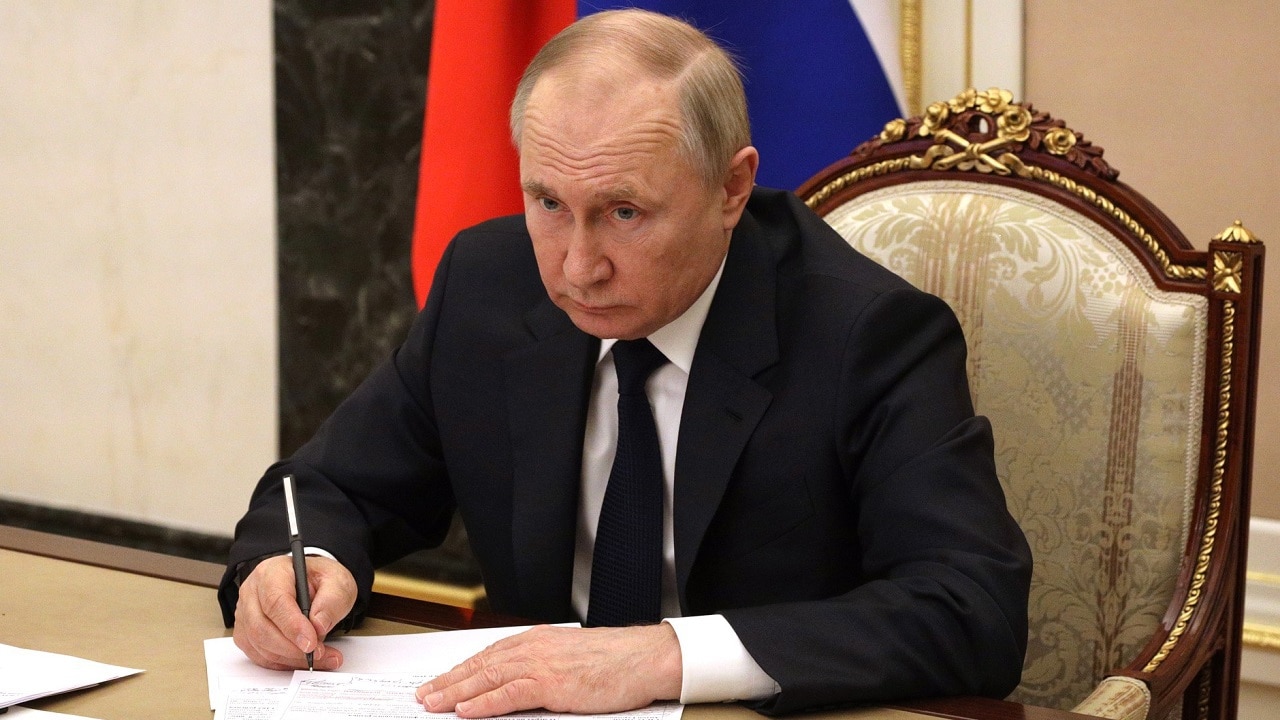What do a Belarusian Noble Prize winner and a 19th-century French aristocrat have in common? They think that Russian political culture is deeply authoritarian.
Svetlana Alexievich believes that “Putin sits in every Russian” and that it’s possible to speak of a “collective Putin” in Russia. Almost two centuries ago, the Marquis de Custine wrote a memoir, Russia in 1839, in which he said that “Whoever has really seen Russia will find himself content to live anywhere else. It is always good to know that a society exists where no happiness is possible because, by a law of nature, man cannot be happy unless he is free.”
Lest one think that such dire views of Russian political culture are held only by novelists and memoirists, here’s what Princeton University historian Stephen Kotkin has to say: “What we have today in Russia is not some kind of surprise. It’s not some kind of deviation from a historical pattern. Way before NATO existed—in the nineteenth century—Russia looked like this: it had an autocrat. It had repression. It had militarism. It had suspicion of foreigners and the West…. it’s not a Russia that arrived yesterday or in the nineteen-nineties. It’s not a response to the actions of the West. There are internal processes in Russia that account for where we are today.”
Although Russian political culture may not have changed fundamentally in 200 years, things are even worse than Kotkin implies. Just as Putin sits in every Russian’s mind today, so, too, Peter the Great, Ivan the Terrible, and Alexander Nevsky have sat in the minds of Russians since the Muscovite State’s inception in the 13th century.
The Grand Duchy of Moscow, as it was then called, acquired this cult of great leaders from the period of the “Tatar Yoke,” which began with the Mongol invasion of Eastern Europe in 1240 and ended with Muscovy’s defeat of the Golden Horde in 1480. Muscovy served as the Horde’s tax collector, adopted the Mongols’ elaborate courtly rites and rituals, engaged in extensive intermarriage, and acquired many of the cultural attitudes and political practices that were commonplace in Mongol society. Subservience to the ruler came to be accepted as the norm, one that Russia’s state-centered form of Orthodox Christianity only reinforced.
The collective Putin has displayed a remarkable resilience. Although the Muscovite State and its successor, the Russian Empire, experienced all manner of crises, traumas, and catastrophes—peasant rebellions, wars, revolutions, invasions, and economic collapse—the political culture has evolved only marginally. To be sure, various segments of Russian society managed to escape the collective Putin’s clutches—19th-century students and intellectuals, 20th-century dissidents, and 21st-century opponents of Putin—but they usually met a sad fate, either being killed, forced to flee abroad, or consigned to concentration camps. Sometimes the people have protested and—as during Mikhail Gorbachev’s perestroika in the 1980s—demanded democracy and rights, but the cultural norm has, alas, been quiescence in and adulation of tyrants.
This apparent immutability of Russian political culture has several important implications.
For starters, it will force Ukrainians, who have usually been receptive to Russian culture, to distance themselves as much as possible from their northern neighbor. This is already happening. Thus, the head of the Ukrainian Institute of National Memory has suggested that Russophobia may now become the “new norm.” A Ukrainian journalist has damned those Russians “who are used to being silent in order to live, who kill in order to live.” And a Ukrainian art historian has called for boycotting Russian culture as the only means of Ukraine’s “de-colonizing” itself.
The persistence of the collective Putin also means that Russia’s democratic future is bleak—even if the democratic forces around the imprisoned oppositionist Alexei Navalny manage to come to power in the aftermath of Putin’s eventual departure. A weak democracy is better than Putin’s fascism, but no one should have any illusions about Russia’s eventual transformation into Norway. Russia will remain a threat to Ukraine’s European aspirations while rejecting most Western values and upending attempts to include it in some larger European security architecture. Collective Putin will always be a problem.
Unless Putin’s humiliation and something akin to Russia’s defeat in a world war happens. Germany’s political culture was also highly authoritarian in the late 19th and early 20th centuries, with an Otto von Bismarck sitting in every German’s head. That culture helped produce two world wars and the Holocaust. That culture also suffered a fatal shock from Germany’s defeat in World War II and its extermination of Jews. Though not quite comparable in magnitude, Russia’s defeat in its war with Ukraine and Putin’s removal from office would be a godsend for Russian democratic political culture.
Indeed, defeat could force the collective Putin to abdicate and be replaced by, say, a collective Gorbachev.
Dr. Alexander Motyl is a professor of political science at Rutgers-Newark. A specialist on Ukraine, Russia, and the USSR, and on nationalism, revolutions, empires, and theory, he is the author of 10 books of nonfiction, including Pidsumky imperii (2009); Puti imperii (2004); Imperial Ends: The Decay, Collapse, and Revival of Empires (2001); Revolutions, Nations, Empires: Conceptual Limits and Theoretical Possibilities (1999); Dilemmas of Independence: Ukraine after Totalitarianism (1993); and The Turn to the Right: The Ideological Origins and Development of Ukrainian Nationalism, 1919–1929 (1980); the editor of 15 volumes, including The Encyclopedia of Nationalism (2000) and The Holodomor Reader (2012); and a contributor of dozens of articles to academic and policy journals, newspaper op-ed pages, and magazines. He also has a weekly blog, “Ukraine’s Orange Blues.”

